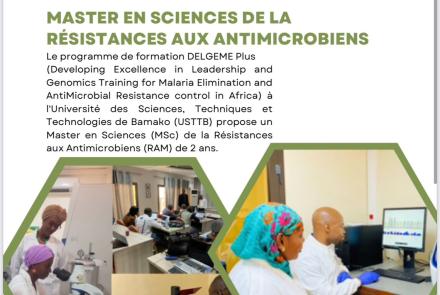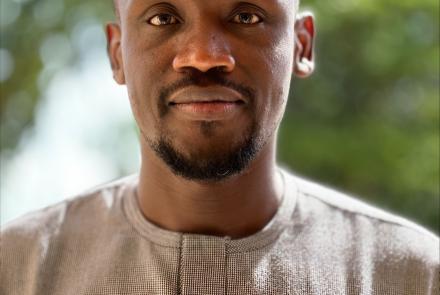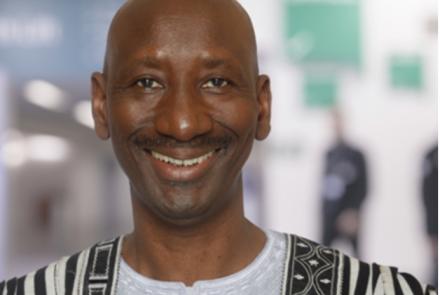

EDCTP-Clinical Research and Product Development Fellow: Dr Amadou Hamidou Togo, MD, PhD, Université des Sciences Techniques et Technologiques de Bamako(USTTB), Faculty of Pharmacy (FAPH), Malaria Research and Training Center (MRTC)
Grant Agreement number: TMA2019IF-2867
Grant Title: TMA2019 IF [ TOGO]
Call for proposals: TMA2019 IF [ TOGO]
The purpose of this Call for Proposals is to support researchers and members of clinical trial research teams from low- and middle-income countries (LMICs) through placements in product development organisations, including pharmaceutical companies and product development partnerships (PDPs).
The work of TMA2019 IF is caried out in three work packages (WP):
Work package_1: Preparation for placement
Work package_2: Training Plan, (Host organisation)
Work package_3: Re-integration
Activities completed:
-Period 1-technical Report
-Period 2 technical Report
-Final Report
Summary
Context and objectives
Researchers from low and middle-income countries have few opportunities to acquire experience and develop skills for conducting clinical trials outside an academic or public sector setting. The Malaria Research and Training Centre (MRTC) in Bamako has conducted several longitudinal cohort and case-control studies, drug efficacy, and malaria vaccine trials. However, the Centre has little experience in HIV/AIDS and TB clinical research. Therefore, there are very few well-trained researchers in these areas. The European and Developing Countries Clinical Trials Partnership (EDCTP) offers fellowships to early and mid-career researchers and clinical trial staff in low- and middle-income countries (LMICs) to enable them to learn how to conduct clinical research in accordance with the ethical principles set out in the Declaration of Helsinki. This project (grant code) is part of the EDCTP2 programme supported by the European Union
Work performed
As part of the EDCTP fellowship, I was placed at the Centre for the AIDS Programme of Research in South Africa (CAPRISA) in Durban, South Africa, for twelve months from June 2022 to May 2023. Upon coming back from CAPRISa, I had a 4-month reintegration at my home institution.
The first part of this fellowship involved a well-structured training plan agreed upon by both of my two supervisors. The training at CAPRISA involved working with clinicians and researchers in the field and the laboratory team to implement the training plan by participating in various activities linked to the Vaccine and HIV Pathogenesis Research . Upon arrival at CAPRISA, I went through orientation and got training on Good Clinical and Laboratory Practices; after that, I participated in clinical and laboratory-based activities. I first visited the different enrolment sites, and I was then placed at the eThekwini CAPRISA Research Clinic site, where I learnt about the conduct of different phases of clinical trials. Thereafter, I joined the Doris Duke Medical Research Institute (DDMRI) Laboratory and drafted a research protocol, with the support of my supervisors and colleagues, that I presented to the group for amendment and approval. The protocol was about establishing the longitudinal impact of the vaginal microbiota on the pharmacokinetics of passively infused monoclonal antibodies in the vagina. After the protocol was approved, vaginal swab samples were retrieved from the CAP012B and CAP012C studies and processed at CAPRISA Laboratory with the assistance of Dr. Andile Mtshali and under the supervision of my mentors from CAPRISA.
After 12-month placement at CAPRISA, I returned back to my country and started the reintegration phase for 4 months. The activities carried out during this phase mainly concerned the transfer of knowledge acquired during my placement at CAPRISA, promoting research into clinical trials, the organisation of a workshop on Good clinical and laboratory practices (GCP & GLP) with my supervisors at MRTC, and the visit of WANECAM 2 (West African Network for Clinical Trials of Antimalarial Drugs 2) sites and the Centre de référence Kénédougou Solidarité (CERKES). WANECAM 2 is a West African research consortium made up of Burkina-Faso, Mali and Niger, then extended to Central Africa through Gabon. It is sponsored by EDCTP 2. CERKES is a non-governmental organisation providing counselling, care, and diagnosis for people living with HIV/AIDS. The workshop was organised in collaboration with senior researchers from the University of Sciences Techniques and Technologies of Bamako (USTTB) and my supervisors. The selection committee selected 40 participants for face-to-face training and 37 participants for online attendance via Zoom. All the participants come from the USTTB, and include nurses, medical and pharmacy interns, Masters and PhD students and researchers. We covered various topics, including the introduction to clinical trials, different phases, protocol development, community engagement, and individual consent. I also presented a summary of my EDCTP fellowship experience. The site visits were conducted under the supervision of a senior scientist delegated by my home supervisor. During the I discussed and shared my experience with both teams.
Potential impact
After 12 months at CAPRISA, Durban, South Africa, I returned to my home country for the re-entry activities. These activities focused on the transfer of knowledge acquired. I visited the clinical research sites of WANECAM 2 and organised a workshop with my supervisors at MRTC from 18 to 20 September 2023. I also visited the Kénédougou Solidarity Reference Centre (CERKES), a non-governmental organisation sponsored by United Nations Programme on HIV/AIDS (UNAIDS) to provide counselling, care, and diagnosis for people living with HIV/AIDS in Sikasso. With the results generated during my placement at CAPRISA, I will draft an abstract and submit it to an international conference as a poster or oral communication. I plan to convert this abstract into manuscripts for publication. Overall, the placement at CAPRISA has contributed to my personal development by acquiring additional skills in conducting and implementing clinical research in Sub-Saharan Africa. This fellowship has built the foundations for future collaborations between the two institutions (University of Sciences Techniques and Technologies of Bamako and CAPRISA), a promising South-South collaboration to improve health conditions in Africa.
To conclude my fellowship, I will organize a workshop on clinical trials in Mali, bringing together researchers from home and host institutions. This will be an opportunity for both institutions to learn from each other and further strengthen future collaborations. This event will also include clinical research site visits of the home institution in Mali.
I thank USTTB for allowing and helping me to apply for this fellowship. I am grateful to CAPRISA for accepting me into their institution. I’m also thankful to EDCTP for the funding and for allowing me to visit another research institution in the context of improving research in Africa.




